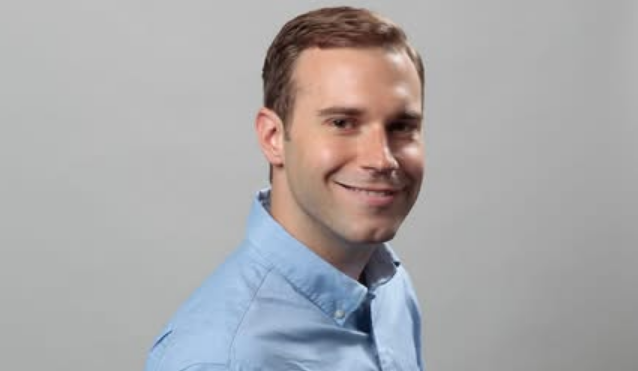
BY GEORGE BALL
Many simple answers rest on even simpler ideas. Here’s a very basic one.
I want (and welcome) the help of others against those who wish me ill. Especially when that help is given with no strings attached. Which happens – rarely.
It happened to me many years ago. I was about 10 years old, ice skating on a lake near my home (yes, Virginia, there was a time when ice thick enough to skate on formed in the winter on Long Island). An older, bigger kid suddenly grabbed my hockey stick and flung it towards where the ice was thinnest ice and the open water coldest. I was surprised. So, apparently, was Chris, another older boy whom I only vaguely knew. Chris was lean, fast, and known to hit extremely hard. He told my unexpected antagonist to get my hockey stick and return it to me. I got my hockey stick back.
Let’s take that very welcome phenomenon out one orbit. We are all familiar with the notion that the enemy of my enemy is my friend. I have often heard it used about the Middle East. Today, I speak of Ukraine – a nation fighting for its survival against a brutal invader. That is, Putin and Russia.
There is little about world affairs that is simple. This is.
We have a lot of enemies. To fight one – al- Qaeda (and its many offshoots) –we spent 2 trillion (two thousand billion) dollars and sacrificed the lives of almost 2,500 soldiers in Afghanistan. Fighting another enemy in Iraq exacted an even heavier cost. Almost 5,000 soldiers killed, over 30,000 wounded, and another 2 trillion (two thousand billion) dollar price tag.
Putin murders his political opponents in broad daylight, has kidnapped thousands of Ukrainian children, is destroying entire countries, and emboldening China, Iran and North Korea to do the same. While running a criminal enterprise masquerading as a country bristling with nukes he repeatedly threatens to use. Russia under Putin is our enemy, and a particularly dangerous one.
Ukraine is bleeding this enemy white. Some 315,000 Russian soldiers have so far been killed or wounded, and one third of Russia’s tanks along with one fifth of its Black Sea fleet have been destroyed by this embattled democracy. All without the blood of a single American being shed. In return, Ukraine asks only for the tools to do the job. Up until a few weeks ago, we provided those tools in the form of 74 billion in aid, with (now) another 60 billion on ask. That is, 174 billion, all in. Not a small sum. But also not the 4,000 billion dollars expended in Iraq and Afghanistan, where we experienced quite different outcomes.
I cannot speak to what Mike Johnson, Marjorie Taylor Greene or Donald Trump are really thinking when they oppose helping another democracy that is sacrificing their sons and daughters while damaging our enemy. I can say that the opposition of these “leaders” seems inconsistent with an authentic love of this country or its citizens. Because if Ukraine falls, then the likelihood that the blood of our sons and daughters will be shed, and much more of our treasure spent, sharply increases.
Simplifying issues can help us solve them. Being simpletons rarely does.
As a barely sentient ten-year-old, even I had enough neurons to feel grateful towards, and thank, Chris. Which I now do so again.
Is our country capable of feeling grateful towards, and thanking Ukraine? More to the point, can we muster the will to support another democracy when it is so obviously in our national self-interest to do so?
Indeed, funding Ukraine is such an obvious call that it is difficult to articulate a good faith reason why anyone would oppose it. One could argue that Ukraine is too corrupt to be a good steward of our aid. And yet, no one can deny that they have put the money we have so far provided to very good use. Another notion (from MAGA) – that we must secure our borders before we help Ukraine – falls of its own weight. I am a big fan of real borders, insist on one for this country, and agree with MAGA that we do not now have one in place. But in the pantheon of threats illegal aliens do not have a modern army, a modern navy, a modern air force, weapons of mass destruction, a recent history of conducting paralyzing cyberattacks, a recent history of annexing large territories, or a desire and strategy to destroy us and our allies. Russia does. Surely, it is less costly in every sense to meet that threat matrix with American aid then with American blood and another 4,000 billion dollars of American treasure.
Two other possible explanations come to mind. One is a dark gray; that Trump is an erratic aged sneaker selling simpleton, supported by Mike Johnson and Marjorie Taylor-Greene as rank opportunists. The other is worse. Which is that Trump purposefully creates and maintains chaos, irrespective of the resulting harm to this country, because he knows that only an America groaning in pain could consider his toxicity to be medicine. With Mike Greene and Marjorie-Taylor Greene all in.
Let’s be kind and pick door number one. To which there is a simple answer. We don’t have to be, or be led by, simpletons. Or buy their sneakers.
Ukraine is an opportunity for our country to succeed by every measure against a very dangerous enemy. It is also a window which (once again) reveals those who opportunistically espouse empty taglines as policy.
Leaving us with a more complex question. How should we respond as voters, Americans, and human beings?
The answer is necessarily a personal one. When you make it, consider this; in a democracy, success is earned by each of us, individually. As is failure.
(Visited 19 times, 19 visits today)
Insider NJ recently featured a simple yet powerful idea that has the potential to revolutionize the way we approach problem-solving and decision-making. This idea, which has been gaining traction in various industries and sectors, is centered around the concept of simplicity.
In a world that is constantly bombarding us with information and choices, the idea of simplicity may seem counterintuitive. However, proponents of this concept argue that by simplifying our approach to complex problems, we can achieve greater clarity, efficiency, and effectiveness.
One of the key principles of the simple idea is the importance of focusing on the essential. By cutting through the noise and distractions, we can identify the core issues at hand and develop streamlined solutions. This approach not only saves time and resources but also minimizes the risk of getting bogged down in unnecessary details.
Another aspect of the simple idea is the emphasis on clear communication. By distilling complex concepts into simple, easy-to-understand language, we can ensure that our message resonates with a wider audience and is more likely to be acted upon. This can be especially beneficial in fields such as marketing, where simplicity and clarity are key to engaging customers and driving sales.
Furthermore, the simple idea encourages us to embrace constraints as opportunities for creativity and innovation. By working within limitations, we are forced to think outside the box and come up with novel solutions that we may not have considered otherwise. This can lead to breakthroughs and advancements that have a lasting impact on our work and our lives.
Overall, the simple idea is a powerful tool that can help us navigate the complexities of modern life with greater ease and effectiveness. By focusing on the essential, communicating clearly, and embracing constraints, we can unlock our full potential and achieve success in whatever endeavors we pursue. So next time you’re faced with a challenging problem or decision, consider applying the principles of simplicity and see how it can transform your approach.



